select datename(month, '2020-06-12'), datename(month, getdate());
--1week
SELECT SUM(amount) AS total
FROM tbl_expense_record
WHERE dateonly >= dateadd(week, -1, cast(getdate() as date))
and dateonly <= cast(getdate() as date)
--1month
SELECT SUM(amount) AS total
FROM tbl_expense_record
WHERE dateonly >= dateadd(month, -1, cast(getdate() as date))
and dateonly <= cast(getdate() as date)
--build muscle memory (it is always safe to check for < date+1 instead of <= date)
--1month
SELECT SUM(amount) AS total
FROM tbl_expense_record
WHERE dateonly >= dateadd(month, -1, cast(getdate() as date))
and dateonly < dateadd(day, 1, cast(getdate() as date));
--6months
SELECT SUM(amount) AS total
FROM tbl_expense_record
WHERE dateonly >= dateadd(month, -6, cast(getdate() as date))
and dateonly < dateadd(day, 1, cast(getdate() as date));
if not exists
(
select *
FROM tbl_expense_record
WHERE dateonly >= dateadd(month, -1, cast(getdate() as date))
and dateonly < dateadd(day, 1, cast(getdate() as date))
)
begin
select 'no rows within the last month'
end
else
begin
select 'there are rows within the last month';
end;
Examples:
declare @tbl_expense_record table(dateonly date, amount decimal(9,2));
insert into @tbl_expense_record
values ('20200501', 10), ('20200612', 10), ('20200613', 11), ('20200614', 12),
('20200710', 5), ('20200720', 6), ('20200820', 20), ('20200825', 30),
('20201102', 1), ('20201110', 2), ('20201120', 3);
--aggregation per month, for all rows
select year(dateonly) as _year, month(dateonly) as _month, sum(amount) as sum_amount_per_month, count(*) as rows_per_month
from @tbl_expense_record
group by year(dateonly), month(dateonly);
--aggregation per iso-week
select year(dateonly) as _year, datepart(iso_week, dateonly) as _isoweek, sum(amount) as sum_amount_per_isoweek, count(*) as rows_per_isoweek
from @tbl_expense_record
group by year(dateonly), datepart(iso_week, dateonly);
--aggregation per month, for all rows with a dateonly that falls in the last month
--check the difference between aggregation per month earlier and this..
--filter rows first == where .... and then aggregate
--there are two rows with dateonly > 06 november (the row at 05 is filtered out by the where clause)
select year(dateonly) as _year, month(dateonly) as _month, sum(amount) as sum_amount_per_month, count(*) as rows_per_month
from @tbl_expense_record
where dateonly >= dateadd(month, -1, cast(getdate() as date))
and dateonly < dateadd(day, 1, cast(getdate() as date))
group by year(dateonly), month(dateonly);
--aggregate per week diff from today/getdate()
select
datediff(week, getdate(), dateonly) as week_diff_from_today,
dateadd(day,
--datepart(weekday..) is used...account for @@datefirst setting / set datefirst
1-(@@datefirst+datepart(weekday, dateadd(week, datediff(week, getdate(), dateonly), cast(getdate() as date))))%7,
dateadd(week, datediff(week, getdate(), dateonly), cast(getdate() as date)))
as startofweek,
dateadd(day, 6, --add 6 days to startofweek
dateadd(day,
--datepart(weekday..) is used...account for @@datefirst setting / set datefirst
1-(@@datefirst+datepart(weekday, dateadd(week, datediff(week, getdate(), dateonly), cast(getdate() as date))))%7,
dateadd(week, datediff(week, getdate(), dateonly), cast(getdate() as date)))
) as endofweek,
sum(amount) as sum_amount, count(*) as rows_within_week
from @tbl_expense_record
group by datediff(week, getdate(), dateonly);

